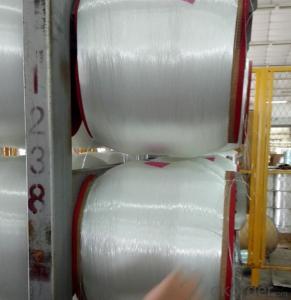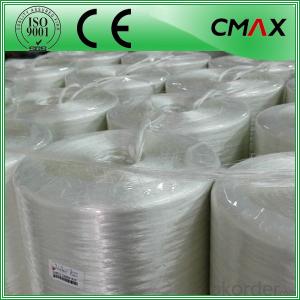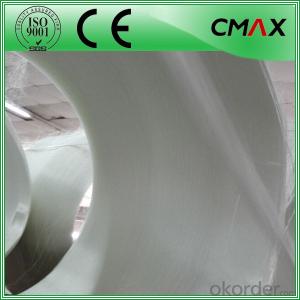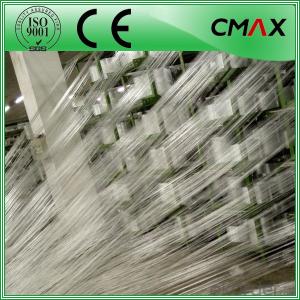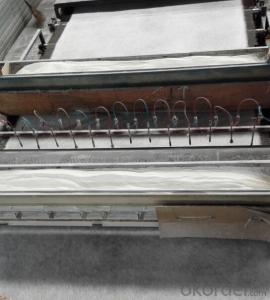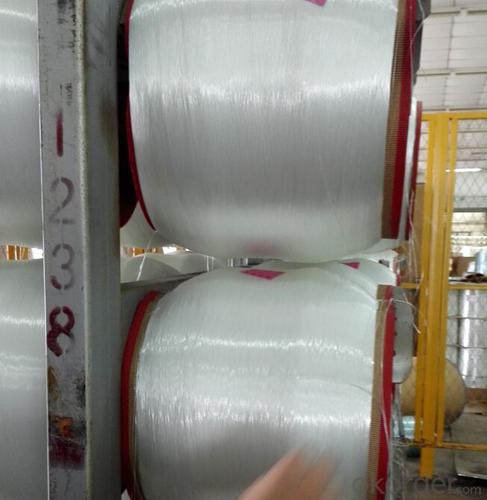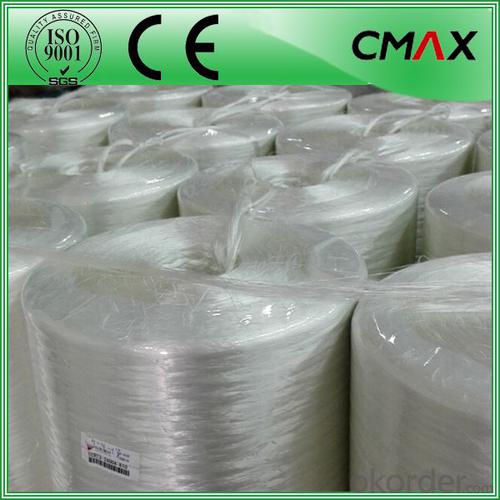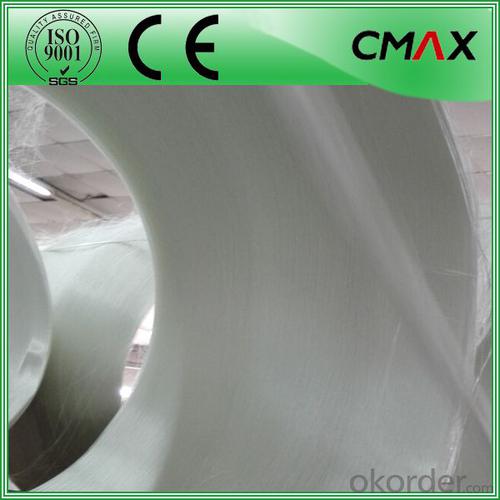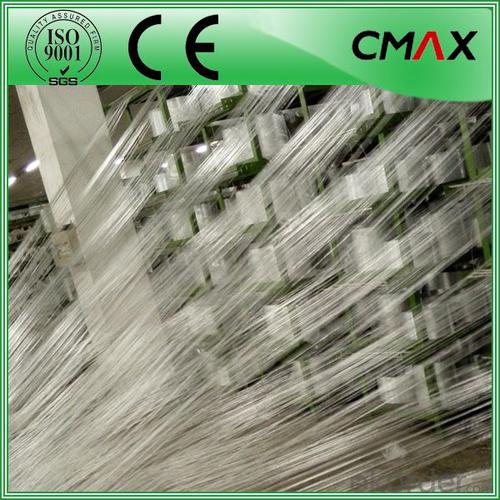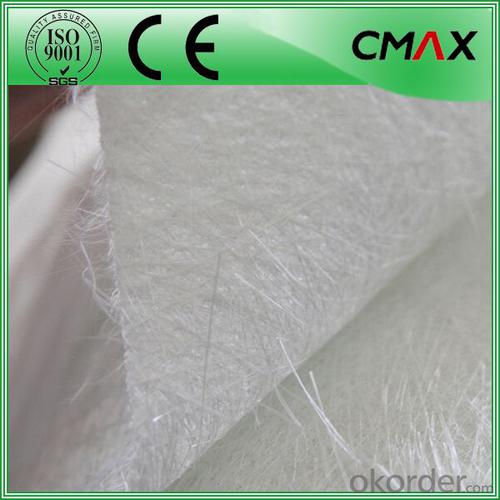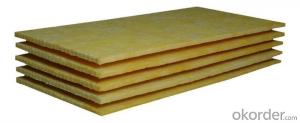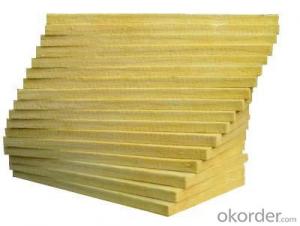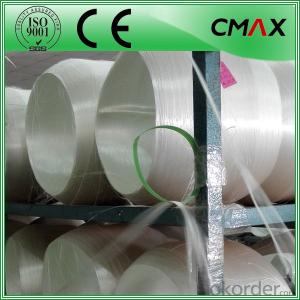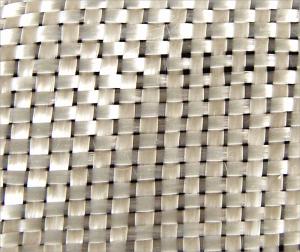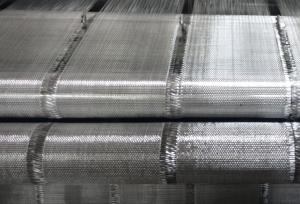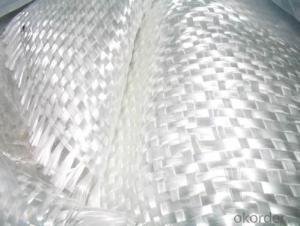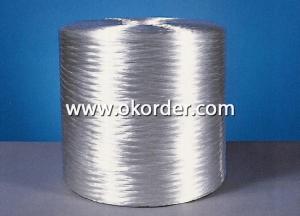Fiberglass Mat Tissue Spray Up Roving with Fiberglass Gun Roving
- Loading Port:
- Shanghai
- Payment Terms:
- TT OR LC
- Min Order Qty:
- 1000 m.t
- Supply Capability:
- 1000000 m.t/month
OKorder Service Pledge
OKorder Financial Service
You Might Also Like
Fiberglass Roving Fiberglass Sprary Up Roving, Fiber Glass Gun Roving
Introduction:
E-glass sprary-up roving, fiberglass gun roving, fiberglass roving is coated with a silance-based sizing, compatible with unsaturated polyester, vinyl ester and polyurethane resins.
It is a versatile general purpose spray-up roving used to manufacture boats, bathroom sinks ,yacht, sanitary ware, swimming pool and automotive parts and also pipe by centrifugal casting process.
Product Features:
1)Silane based coupling agent which delivers most balanced sizing properties.
2)Special sizing formulation which delivers good compatibility with martix resin.
3)Consistent fiber linear density,good mold ability and dispersion
4)Excellent mechanical properties of composite products
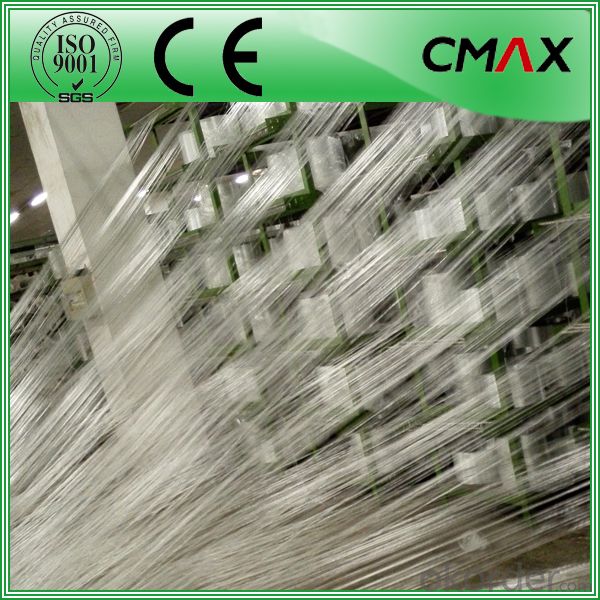
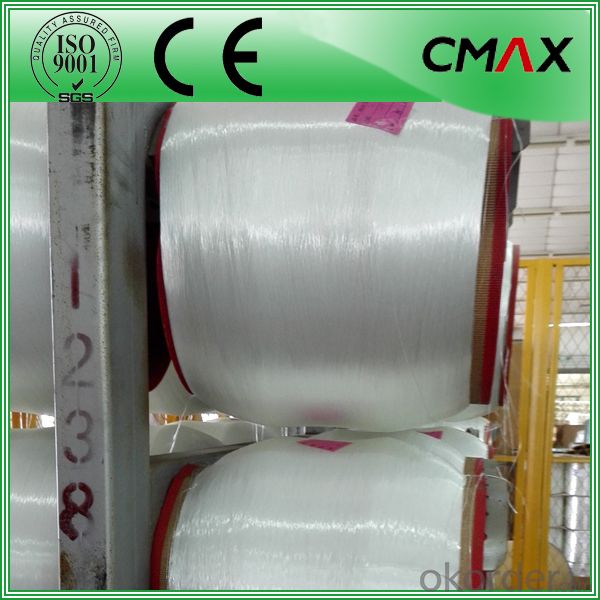
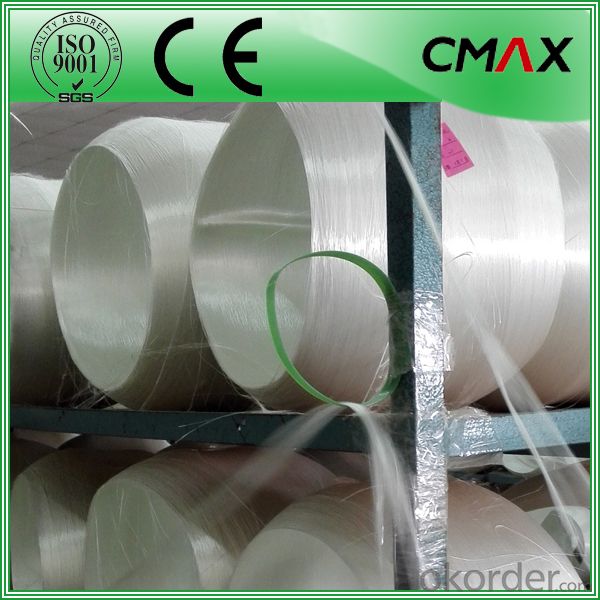
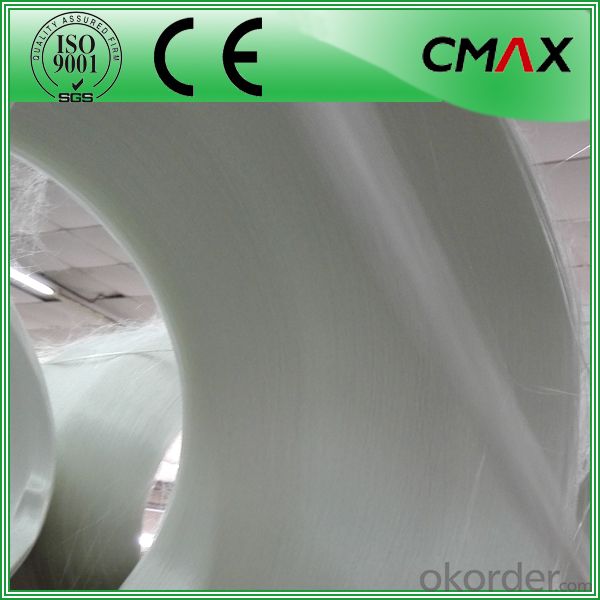
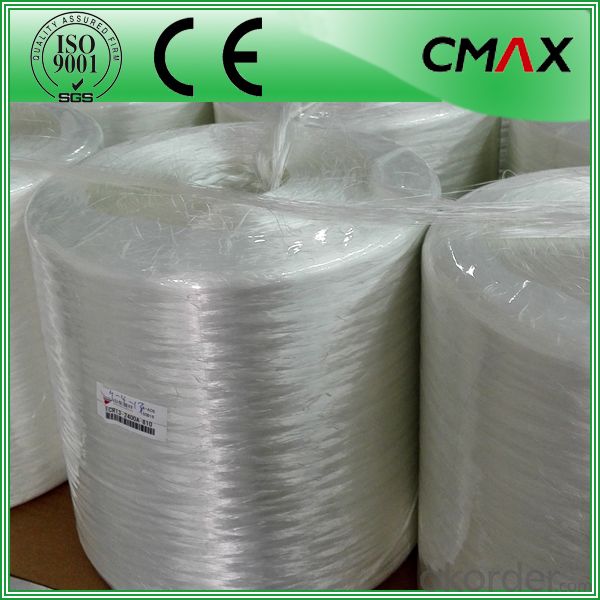
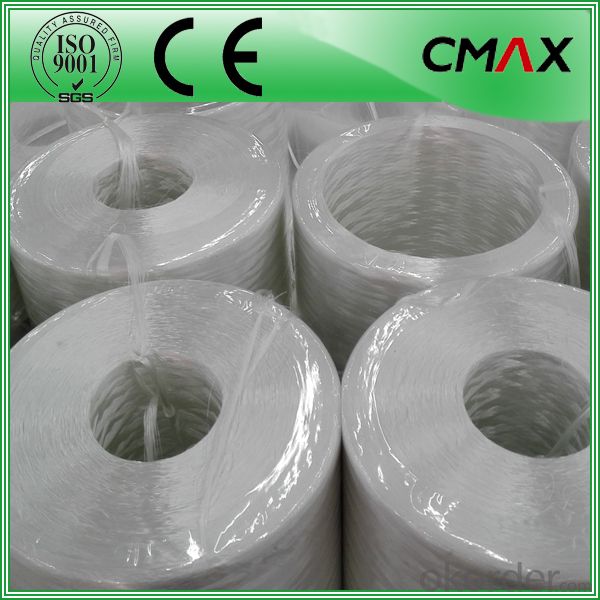
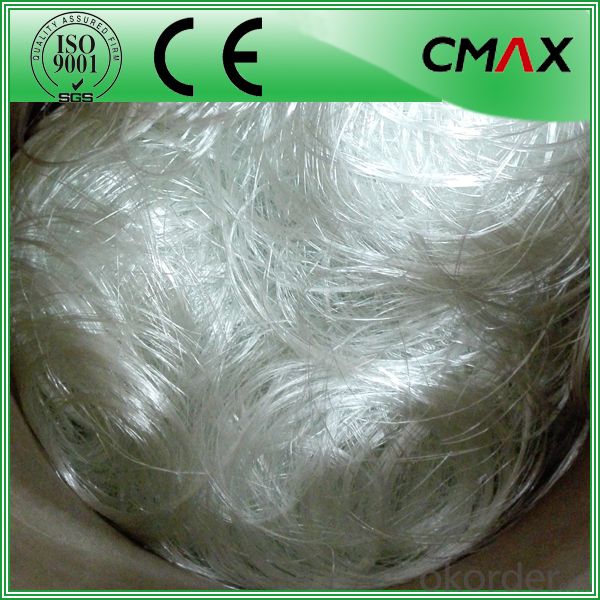
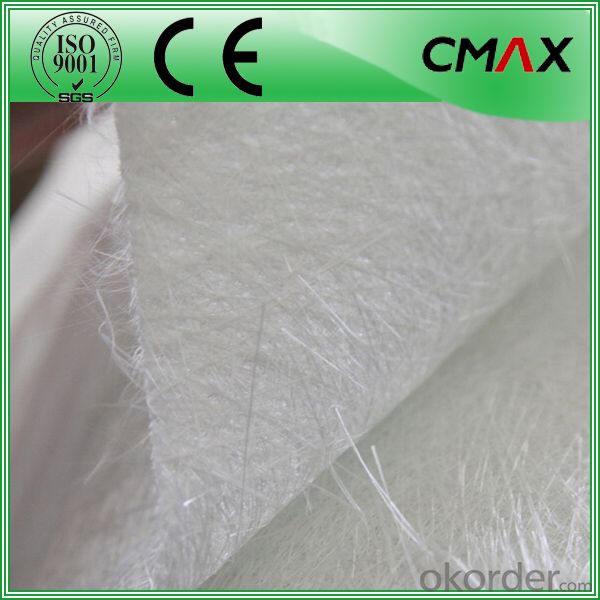
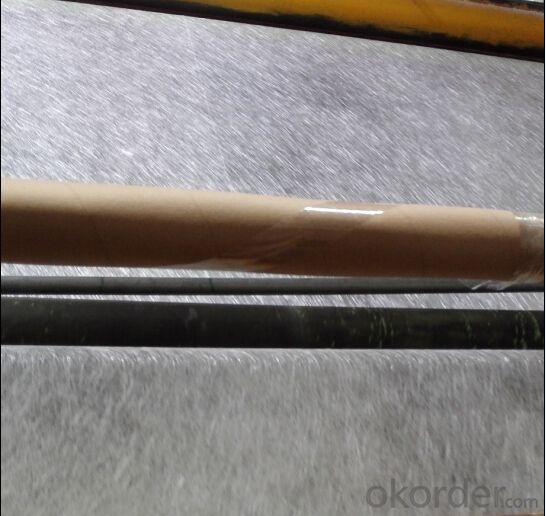
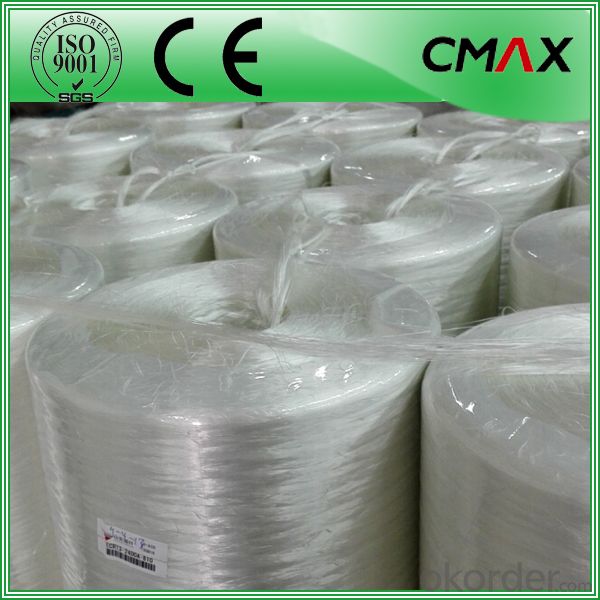
Packaging:
Product is manufactured in form of a roll wrap on a paper tube then after packed in a plastic bag and placed in a cardboard carton. Rolls can be loaded in a container directly or on pallets.
Deposited:
Chopped Strand Mat should be stored in dry, cool, clean and rainproof area. Recommended temperature range of storage is between 15-30 and relative humidity between 40%-70%.
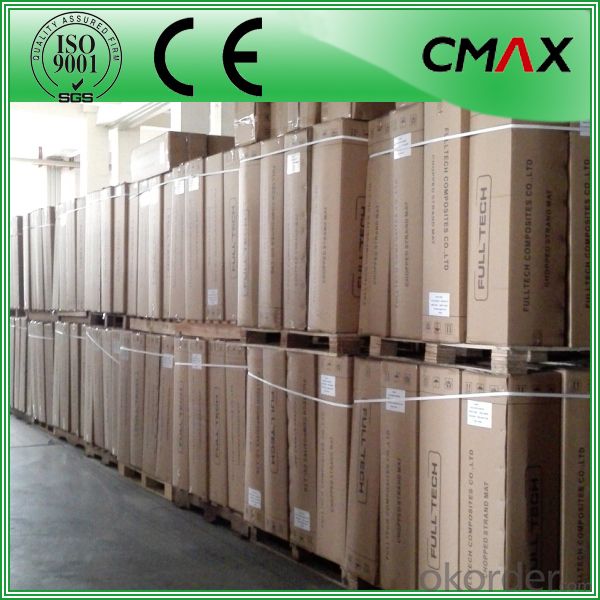
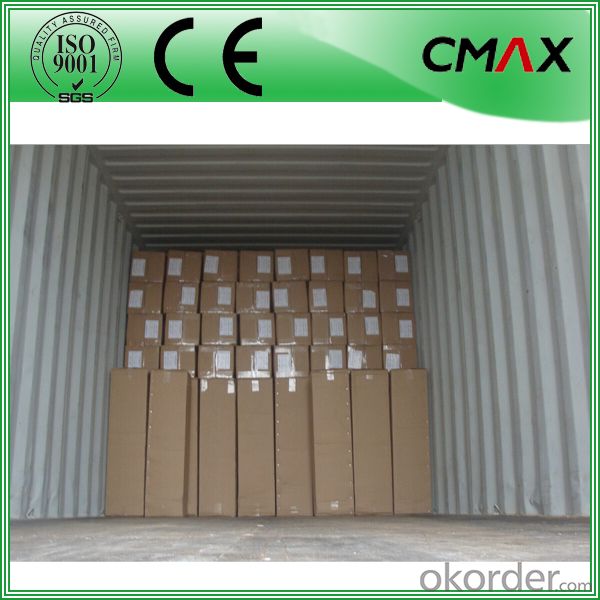
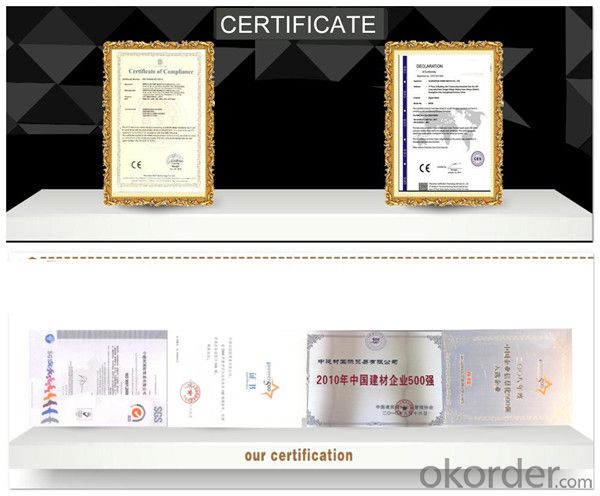
FAQ:
Is sample available ?
Yes, we provide the free samples, but customers themselves need pay the shipping fee
What's your MOQ?
Our MOQ is one 1*20' full container loading
How do you pack the fiberglass
(1) First, the mat is in roll packed in White PE fIlm.
(2) Then the rolls packed in the carton
4.Which knid of payment terms can you accept?
We can accept 30% prepayment, 70% payment before shippment. LC is also accepted
- Q: Can fiberglass mat tissue be used for reinforcing fiberglass pools?
- Yes, fiberglass mat tissue can be used for reinforcing fiberglass pools. Fiberglass mat tissue is a thin, flexible material that is commonly used in the construction and repair of fiberglass structures, including pools. It is made up of fine glass fibers that are bonded together with a binder. When applied to the surface of a fiberglass pool, the mat tissue provides additional strength and reinforcement, helping to prevent cracks or damage. It is typically applied in conjunction with a fiberglass resin, which acts as an adhesive to bond the mat tissue to the pool surface. Using fiberglass mat tissue for reinforcing fiberglass pools is a common practice and can help to extend the lifespan and durability of the pool.
- Q: What is the cost of fiberglass mat tissue?
- The cost of fiberglass mat tissue can vary depending on factors such as the thickness, size, and brand. It is best to check with suppliers or retailers for specific pricing information.
- Q: Can fiberglass mat tissue be used for electrical insulation?
- No, fiberglass mat tissue cannot be used for electrical insulation.
- Q: How does fiberglass mat tissue compare to polystyrene insulation?
- Fiberglass mat tissue and polystyrene insulation are two different materials used for insulation purposes, and they have their own distinct characteristics and benefits. Fiberglass mat tissue is made from thin strands of glass fibers that are woven together to form a mat. It is commonly used in applications where heat and sound insulation is required. Fiberglass mat tissue is known for its excellent thermal insulation properties, as it can effectively resist heat transfer, making it suitable for both hot and cold environments. Additionally, it is resistant to moisture and does not promote the growth of mold or mildew. On the other hand, polystyrene insulation is a foam material made from expanded polystyrene beads. It is widely used in the construction industry as it provides good thermal insulation and can be easily shaped or cut to fit various spaces. Polystyrene insulation is known for its high compressive strength, making it ideal for load-bearing applications. It is also moisture-resistant, lightweight, and has excellent resistance to aging and degradation. When comparing fiberglass mat tissue to polystyrene insulation, there are a few key differences to consider. Fiberglass mat tissue is generally more flexible and can be easier to install in irregular or curved surfaces. It is also more resistant to fire, as it does not burn or release toxic gases when exposed to flames. However, fiberglass mat tissue can be more expensive than polystyrene insulation and may require additional protective measures, such as wearing gloves and masks during installation, due to its potential for skin and respiratory irritation. Polystyrene insulation, on the other hand, is less expensive and easier to handle and install compared to fiberglass mat tissue. It also has better moisture resistance, which makes it suitable for applications in areas with high humidity or potential water exposure. However, polystyrene insulation is more flammable than fiberglass mat tissue and can release toxic gases when burned. In conclusion, the choice between fiberglass mat tissue and polystyrene insulation depends on the specific requirements of the insulation project. Fiberglass mat tissue is well-suited for its excellent thermal insulation properties, fire resistance, and resistance to moisture and mold. Polystyrene insulation, on the other hand, offers good thermal insulation, ease of installation, and high compressive strength. Ultimately, it is important to consider factors such as cost, installation requirements, fire resistance, and moisture resistance when deciding between fiberglass mat tissue and polystyrene insulation.
- Q: Can fiberglass mat tissue be used for insulating exterior walls?
- Yes, fiberglass mat tissue can be used for insulating exterior walls. Fiberglass mat tissue is a type of insulation material that is commonly used for its excellent thermal and acoustic insulation properties. It is made of fine glass fibers that are bonded together with a binder, creating a flexible and lightweight material. When used for insulating exterior walls, fiberglass mat tissue is typically installed between the wall studs or in the wall cavities. It helps to reduce heat transfer by trapping air within its fibers, which acts as a barrier against heat loss or gain. This insulation material can significantly improve the energy efficiency of a building by reducing the need for heating or cooling, thereby reducing energy costs and carbon emissions. Fiberglass mat tissue is also resistant to moisture, mold, and mildew, making it suitable for exterior applications. It helps to create a more comfortable and healthier indoor environment by preventing the growth of harmful microorganisms and reducing condensation. Additionally, fiberglass mat tissue is fire-resistant, adding an extra layer of safety to the building. Overall, fiberglass mat tissue is a versatile and effective insulation material that can be used for insulating exterior walls. Its thermal, acoustic, moisture resistance, and fire-resistant properties make it an excellent choice for improving the energy efficiency and comfort of buildings.
- Q: Does fiberglass mat tissue provide any thermal insulation?
- Yes, fiberglass mat tissue does provide thermal insulation. Fiberglass is a poor conductor of heat, which means it does not transfer heat easily. When used as a mat tissue, it helps to trap air within its fibers, creating a layer of insulation. This insulation layer acts as a barrier, preventing heat transfer through conduction and reducing thermal energy loss. Therefore, fiberglass mat tissue can be an effective solution for providing thermal insulation in various applications, such as construction, automotive, and aerospace industries.
- Q: Does fiberglass mat tissue require any special precautions during cutting?
- Yes, fiberglass mat tissue does require special precautions during cutting. Fiberglass mat tissue is made up of fine strands of glass, which can be dangerous if inhaled or come into contact with the skin. Therefore, it is important to take certain precautions to minimize the risks associated with cutting fiberglass mat tissue. Firstly, it is advisable to wear proper personal protective equipment (PPE) such as gloves, safety glasses, and a dust mask or respirator. This will help to protect your skin, eyes, and respiratory system from any potential harm. Secondly, when cutting fiberglass mat tissue, it is recommended to use tools specifically designed for fiberglass cutting, such as a utility knife or a pair of scissors with serrated edges. These tools are designed to minimize the release of loose fibers and reduce the risk of injury. Additionally, it is important to work in a well-ventilated area or use proper dust extraction systems to minimize the release of fiberglass particles into the air. This will help to prevent inhalation of the fibers and reduce the risk of respiratory issues. Lastly, it is crucial to handle cut fiberglass mat tissue with care to avoid any accidental contact with bare skin. If contact occurs, it is recommended to immediately wash the affected area with soap and water and seek medical attention if necessary. Overall, by following these precautions, the risks associated with cutting fiberglass mat tissue can be minimized, ensuring a safe working environment.
- Q: Can fiberglass mat tissue be used for repairing damaged fiberglass structures?
- Fiberglass mat tissue is a valuable tool in the repair of damaged fiberglass structures. This versatile material is frequently utilized in both the construction and repair of fiberglass structures. Its thin, flexible nature allows it to be easily shaped and molded to fit any damaged area. Furthermore, its reputation for strength and durability makes it an optimal choice for reinforcing and fortifying weakened fiberglass structures. Boats, car bodies, and other fiberglass products commonly benefit from the application of fiberglass mat tissue in the repair of cracks, holes, and other damages. Moreover, the simple bond between the damaged area and the fiberglass mat tissue can be easily achieved through the use of epoxy or polyester resin, resulting in a robust and long-lasting repair. All in all, fiberglass mat tissue is a dependable and efficient solution for the repair of damaged fiberglass structures.
- Q: Does fiberglass mat tissue provide any electrical insulation?
- Indeed, electrical insulation is provided by fiberglass mat tissue. Fiberglass, as a material, is non-conductive, signifying its incapability to conduct electricity. Once utilized as a mat tissue, it serves as a protective obstacle, effectively obstructing the passage of electrical current through the material. Consequently, it becomes fitting for a wide range of electrical applications necessitating insulation, including the production of circuit boards, electrical panels, and insulating tapes. Furthermore, fiberglass mat tissue is recognized for its exceptional dielectric strength, thereby augmenting its electrical insulation attributes.
- Q: Can fiberglass mat tissue be used for reinforcing concrete structures?
- Indeed, fiberglass mat tissue can be utilized to fortify concrete structures. This material, crafted from woven glass fibers, is thin and lightweight. It boasts a commendable strength-to-weight ratio and exceptional resistance to corrosion, rendering it an optimal selection for reinforcing concrete structures. When employed as reinforcement in concrete, fiberglass mat tissue is typically embedded within the concrete mixture. This inclusion aids in enhancing the concrete's tensile strength and ductility, effectively preventing cracks and augmenting its overall durability. Fiberglass mat tissue is frequently employed in various applications, including precast concrete panels, concrete pipes, and concrete overlays. These structures benefit from the reinforcement provided by fiberglass mat tissue, enabling them to endure heavy loads and resist cracking, particularly in areas where concrete alone may prove inadequate. Additionally, fiberglass mat tissue exhibits resistance to chemicals and environmental elements, qualifying it for use in harsh conditions or exposed surroundings. It does not succumb to corrosion or rust like traditional steel reinforcements, ensuring the longevity and structural integrity of the concrete structure. In conclusion, fiberglass mat tissue stands as a dependable and efficient choice for reinforcing concrete structures. Its lightweight nature, impressive strength, corrosion resistance, and durability have solidified its status as a popular option within the construction industry.
Send your message to us
Fiberglass Mat Tissue Spray Up Roving with Fiberglass Gun Roving
- Loading Port:
- Shanghai
- Payment Terms:
- TT OR LC
- Min Order Qty:
- 1000 m.t
- Supply Capability:
- 1000000 m.t/month
OKorder Service Pledge
OKorder Financial Service
Similar products
Hot products
Hot Searches
Related keywords
